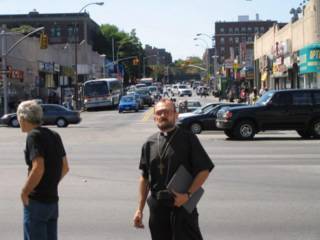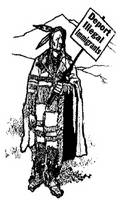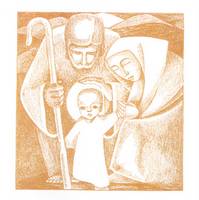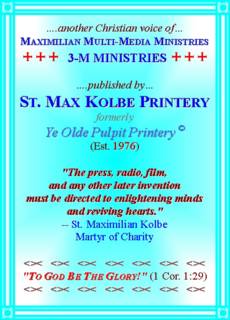PPP -- Synopsis of TORC Beliefs and Practices

Jesus in The Temple with the rabbis
(Luke 2:40-50.)
Lithograph by Gustave Doré (1832-1883)
"....a Little One shall lead them..." (Isaiah 11:6.)
"Teach us your ways, O LORD." (Deut. 4:9)
"Show me Your ways, O Lord,
teach me Your paths; guide me in Your Truth
and teach me, for You are God my Savior
and my hope is in You all day long." (Psalm 25)
(....then, two decades later...after Cleansing the Temple and healing the blind and lame in the Temple area and curing them...) "....The chief priests and the scribes became indignant when they observed the wonders He worked, and how the children were shouting out in the temple precincts, "Hosanna to the Son of David!" "Do you hear what they are saying?" they asked Him. Jesus said to them: "Of course I do! Did you never read this: "From the speech of infants and children (Hence the common saying: "Out of the mouths of babes.") You have framed a hymn of praise." (Matthew 21:14-16.)
Our Religious Identity:
Traditional Old Roman Catholicism is the same Mystical Body of Christ as in the first Christian centuries. There have NEVER been any changes in doctrine or moral teaching. The decrees of the Second Council of Utrecht, held under Archbishop Meindaerts in 1763, are a monument of orthodoxy and respect for the Holy See. In a declaration made by Archbishop Van Os and his two suffragan bishops to the Papal Nuncio who visited Holland in 1823, they said:
"We accept without any exception whatever ALL the Articles of the Holy Catholic Faith. We will never hold nor teach, now nor afterwards, any other opinion than those that have been decreed, determined, and published by our Mother, Holy Church.... We reject and condemn everything opposed to them, especially all heresies, without any exception, which The Church has rejected and condemned.... We have never made common cause with those who have broken the bond of unity."
The Traditional ORCC also subscribes to the unanimous declaration of the Twelfth General Council of the ORCC, held at the RC Benedictine Abbey of Saint Paul in Newton, New Jersey, on April 27-28, 1973, which declares:
"… This General Council reaffirms that it holds and teaches ALL that is held and taught by the Roman Catholic Church on matters of Faith and morals... Clearly, then, lest there be further misunderstanding, we hold and teach the Catholic Faith without any reservations, condemning all heresies condemned by Rome, and teaching even those doctrines which have been declared by Roman Pontiffs since this Communion has been cut off from the spiritual ministrations of our Holy Father the Pope: The Immaculate Conception of our Lady, and Papal Infallibility, and the Assumption of our Lady."
However, the ORCC is not subject to Papal Obedience except when the Holy Father speaks ex cathedra (infallible from the throne). His Holiness has only done that twice by defining the dogma of the Immaculate Conception and The Assumption of the BVM. It recognizes him as “primus et patris,” that is, “first among equals” among all bishops of the Catholic and Orthodox Christian communions. Doctrinal pronouncements from the Vatican are only binding on Old Roman Catholics provided that they do not contradict Apostolic Tradition and the seven Ecumenical Councils of the Undivided Church (pre schism 1040 A.D.)
Within our name, the prefix, "Old", is used to explain the fact that the ORCC continued to preserve the practice, ritual, liturgy and rules of the Church as existed before the year 1711 and because she rejects the errors of modernism and existentialism (as opposed to the “New Romans”) and every recent innovation, while adhering faithfully to the doctrine and discipline of the Church of Apostolic times.
Our particular Church tradition is called “Old” not to disown growth, but to show fundamental dependence on Christ and His Gospel and reference to the historical development out of the Catholic Church in the Netherlands.
She is called "Roman" because Her teaching is identical with that of the Holy See of Rome in the authentic exercise of Its magisterium; because the line of her Apostolic Succession from the first century until 1739 was held in common with the Roman Catholic Church; and because She uses the Roman Rite (in the form prescribed by Pope Saint Gregory the Great, and codified by Pope Saint Pius V) without addition or change, using the time honored texts of the Missale, Pontificale, and Rituale Romanum with great care and exactness as to minister, matter, form and intention in the offering of the Holy Sacrifice of the Mass and in the administration of the Sacraments.
The Church is “Catholic" because She is not confined to any one nation or place or time, teaching the same Faith once delivered by her Divine Founder, Jesus Christ to the Apostles. "You are fortunate; you have remained in the Church through your Faith. You held fast to the foundations of The Faith which has come down to you from Apostolic Tradition... In the present crisis, it is they who have broken away from it." (St. Athanasius, champion of Christ's Divinity, Doctor of Orthodoxy, Doctor of the Church, 373 AD)
We must keep in mind that "Catholic" is from two Greek words, "kata holos", which means "having regard for the whole", i.e., the whole Faith and the whole Church. Rendering the word as "Universal" can be misleading if one takes that to mean "inclusive" in a sense of including things that are not consistent with Holy Tradition and Holy Scripture.
The Old Roman Catholic Church is not a sect, a protestant or schismatic group or a separate church, such as those groups that have emerged at various times through conflict or heresy. It is actually the historical Holy Roman Catholic Church in principle, doctrine, sacraments and rules, according to all ecclesiastical laws. "Therefore, heresy is from the Greek word meaning 'choice'… But we are not permitted to believe whatever we choose, nor to choose whatever someone else has believed. We have the Apostles of God as authorities, who did not…choose what they would believe but faithfully transmitted the teachings of Christ. So, even if an angel from heaven should preach otherwise, he shall be called anathema.” (St. Isidore, Doctor of the Church and last of the great Latin Fathers: "Etymologies", 7th Century)
We are NOT a “parallel” Catholic Church (since The Church Catholic is One), rather, we compliment and supplement the many other rites within Catholicism. In the light of the tragic developments of previous centuries, and despite them, we can see that the ORCC received and still preserves the seven Sacraments, the doctrines, rites, and moral teachings of the Church of Christ and the Apostles.
Like our ancient ecclesiastical forbearers in Utrecht, we are a resistance movement of Traditional Catholics who constantly contend with religious persecution (LUKE 6: 22-23, 28.) from ultramontanes and secular modernists. "Teach nothing new, but implant in the hearts of everyone those things which the fathers of venerable memory taught with a uniform preaching ... Whence, we preach nothing except what we have received from our forefathers. In all things, therefore, both in the rule of faith in the observance of discipline, let the pattern of antiquity be observed." (Pope St. Leo the Great, Father and Doctor of the Church)
Beliefs and Creeds:
The Statement of Faith and Belief of the ORCC is confessed through the three ancient creeds: 1.) The Athanasian Creed (c. 296-373 A.D.), 2.) The Nicene Creed (325 A.D.) minus insertion of the optional “Filioque”as tradition rather than Doctrine of the Dual Procession and 3.) The Apostles Creed. *
[* a.k.a. the Interrogatory Creed of Hippolytus in A.D. 215. This Symbolum Apostolorum was developed between the 2nd—9th centuries A.D. and became known as “The Roman Symbol.” Legend has it that the Apostles wrote this creed on the tenth day after Christ's ascension into heaven. That is not the case, though the name stuck.]
Traditional ORCC beliefs are articulated via the Vincentian Canon of St. Vincent of Lerins (434 A.D.) “that which is believed everywhere, always, by all.” It upholds Byzantine Canon V of the Council of Sardica (343 A.D.) as the first synod that asserted Roman Primacy. However, the ORCC rejects ultramontane “Papal totalitarianism,” but accepts those Catholic doctrines promulgated after the Council of Trent (1545-1563 A.D.) as normative pious devotions not binding on the faithful.
The ORCC administers the seven sacraments (mysteries) of Baptism, Penance, Holy Eucharist, Confirmation (a.k.a. Chrismation), Holy Matrimony, Holy Orders, and Extreme Unction (a.k.a. The Sacrament of the Sick). Of these seven, the administration of Holy Orders and Confirmation (except when delegated to the Apostolic Vicar) is reserved to the Bishop.
The ORCC celebrates the Roman Rite of St. Pope Pius V (a.k.a. Tridentine Liturgy codified in 1570) in both Latin and vernacular tongues. We use the 1962 Missal within Holy Mass. There are some ORC jurisdictions which permit their clergy to celebrate the New Rite of Pope Paul VI when that particular parish requests it. That's when the new rubrics are used to some degree (facing the people, etc.) However, the correct (traditional) Words of Consecration are always used regardless.
Ecumenism and Interfaith Relations:
Unlike the Old Catholics and recent RC reversals, the Traditional ORCC still repudiates the 95 Thesis (1517 A.D.) of Martin Luther, the Lutheran Augsburg Confession of Faith (both 1530 and 1540 A.D.), the Lutheran Book of Concord (Confessions of 1529-1580 A.D.) and the Doctrinal Position of the Missouri Synod (1932 A.D.) in parts.
The Traditional ORC Ultrajectine Tradition also repudiates the teachings and praxis of the 116-years-young Old Catholic Movement as presented in the Treaty of Utrecht (1889), the Anglican/OC Treaty of Bonn (1931), the 14 Theses of the Old Catholic Union (1874) and the Chicago-Lambeth Quadrilateral (1886-88). It also rejects the Protestant Episcopal 39 Articles of Religion (1571, 1801 and 1988).
Except for the Holy Orders of those Anglican Catholics consecrated by OC Bishops and within that canonical lineage, the traditional ORCC subscribes to the 1896 Bull of Pope Leo XIII Apostolicae Curae "The Nullity of Anglican Orders."
Conversely, however, the ORC Ultrajectine Tradition endorses the Affirmation of St. Louis (1977) of the Continuing Anglican Church in America.
The Traditional ORCC, which supports the Anglican Catholic Church (ACC) movement of Continuing Anglicans, is a proponent of the Anglican Oxford movement approach for “recatholicising” the Church of England where (besides some Western Orthodox and New Rite communions) many ORC members also converted from.
The Traditional ORCC exercises dialogue and cooperation with the Old Catholics, Anglicans and Lutherans according to the Christian Rule of St. Augustine: “unity in Faith, freedom in doubt and charity in all things.” However, it does not practice "communicatio in sacris" (intercommunion) with many of them and shuns such “false ecumenism.”
The Traditional ORCC subscribes to and endorses the Oberlin Statement (September 3-10, 1957) issued by the Greek Orthodox Church in the USA regarding false ecumenism.
Ecumenical Unity: The ORCC endeavored to bring about Christian unity and began by adopting into some churches, an authorized translation of the Latin liturgy into the English language. In the interest of unity, an Act of Union was accomplished between the Orthodox Patriarchate of Antioch and the ORCC in 1911. A similar Act of Union occurred in 1912 with the Orthodox Patriarchate of Alexandria. These Acts have never been questioned or repudiated.
Vatican Recognition & Affirmation:
Despite the fact that all the Bishops of the ORCC (except one, Abp. Van Os of Utrecht) received arbitrary Papal excommunications and incurred automatic ipso facto excommunications thereafter (only for receiving Episcopal Consecration without Vatican approval), the Vatican in Rome recognizes the ORCC as valid though "illicit" (or "irregular.")
Archbishop Mathew was excommunicated by St. Pope Pius X on Feb. 11, 1911 within the Bull "Cravi Iamdiu Scandalo". He not only excommunicated Abp. Mathew, but called him a "pseudo-bishop" and declared him vitandus, a term in Church law which meant that Catholics were subject to censure if they had anything to do with Abp. Mathew. Pope Pius X also extended his sentence of excommunication to include those who had been consecrated by Abp. Mathew. Mathew's excommunication has never been lifted by Rome.
That was an illegal action by the sainted pope because of Debitum Pastoralis (Pope Leo X, 1520). In typical Roman fashion, they simply choose to ignore + Leo X's Bull. The reason for + Pius X's over-reaction was because Abp. Mathew, who had received a papal doctorate from Pope Pius X at the time of his ordination, enraged the Pope by consecrating two fugitive Roman monsignori in the UK who had been leaders in the development of an ultrajectine tradition within the Roman Church in the UK. Another factor in the matter was the trend within the Curia to re-establish a rabid ultramontanism following Pope Leo XIII's rather lay back administration which itself succeeded Pope Pius IX's extreme ultramontanism.)
At no time has the Roman Church ever denied the validity of Archbishop Mathew's orders or those of his ecclesiastical descendents. It’s impossible for them to do so. Obviously, they would prefer Old Roman Catholics and Old Catholics to simply disappear. However, since that isn't about to happen, they regard us as valid, but "illicit" (or "irregular") – only because our bishops' consecrations occurred without the benefit of a papal mandamus. That is the same position they hold toward the Eastern Orthodox Churches.
Roman Catholics have affirmed our upright status as far back as 1928 within a RC magazine "The Far East" (January, 1928, p. 16), a publication of the Columban Fathers of St. Columban's, Nebraska. They were replying to an inquiry concerning the validity of the orders conferred in the Old Roman Catholic Church. The article mentions our late Archbishop Carfora (from whom many present Old Roman Catholic bishops derive their orders) favorably and states, "These orders are valid."
Also, certain text in the Papal Bull of Pope Pius X of February, 1911, reveals and recognizes, beyond all possibility of question, the absolute validity of the Orders of the ORCC and by virtue of the line of direct succession, this same communion.
[Valuable background material on the concept of the Sacraments being conferred validly, apart from unity with the Holy See, may be gained by reading St. Augustine, "On Baptism" in “An Augustine Reader” (Garden City: Image, 1973) pp. 204-234; and from the Catholic Encyclopedia (1915), s.v. "Donatism."]
The late ORC Archbishop Vincent Peter Crisci (d. 1/05) of St. Lucy's Cathedral here in Brooklyn, NY enjoyed a good rapport, friendship and pastoral cooperation with Theodore Cardinal McCarrick of Wash., D.C. while he was the former RC Archbishop of Newark, NJ. While they had appeared in the press together, the had not concelebrated Mass to the best of my knowledge.
There have been occasions where Old Roman Catholic clergy, this writer included, have concelebrated the Novus Ordo with Roman Catholic clergy. It's rare -- such as at family funerals or ecumenical gatherings -- but it has occurred with no great fanfare. However, this does not imply a formal "intercommunion." There are RC clergy who have no problem with concelebration with ORC clergy. It is mainly ORC clergy who decline Novus Ordo concelebration and/or participation.
Despite their claims to the contrary, much of the above does not pertain to the protestant Old Catholics since most of those renegade wackos are way out in left field.
Communicato in Sacris (Intercommunion):
We do NOT practice "communicatio in sacris" (Eucharistic intercommunion) with those not belonging to our household of Faith because, however politically incorrect, “false ecumenism” does not foster theological unity.
"....The Eucharist is too great a gift to tolerate ambiguity and depreciation... ....77. The Eucharist, as the supreme sacramental manifestation of communion in The Church, demands to be celebrated in a context where the outward bonds of communion are also intact. In a special way, since the Eucharist is “as it were the summit of the spiritual life and the goal of all the sacraments”, 78 it requires that the bonds of communion in the sacraments, particularly in Baptism and in priestly Orders, be real. It is not possible to give communion to a person who is not baptized or to one who rejects the full truth of the Faith regarding the Eucharistic mystery. Christ is the Truth and He bears witness to the Truth (cf. JOHN 14:6; 18:37); the sacrament of His Body and Blood does not permit duplicity."
45. While it is never legitimate to concelebrate in the absence of full communion, the same is not true with respect to the administration of the Eucharist under special circumstances, to individual persons belonging to Churches or Ecclesial Communities not in full communion with the Catholic Church. In this case, in fact, the intention is to meet a grave spiritual need for the eternal salvation of an individual believer, not to bring about an intercommunion which remains impossible until the visible bonds of ecclesial communion are fully re-established...."-- ("Ecclesia de Eucharistia", Encyclical of Pope John Paul II, April 17, 2003 )
































































0 Comments:
Post a Comment
<< Home